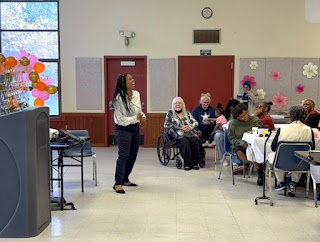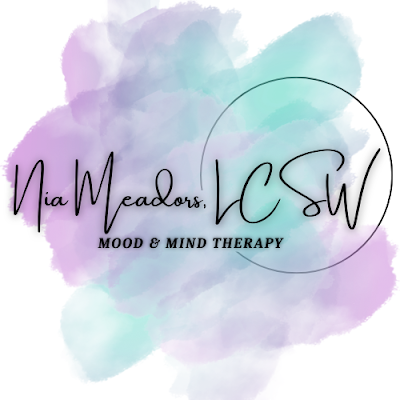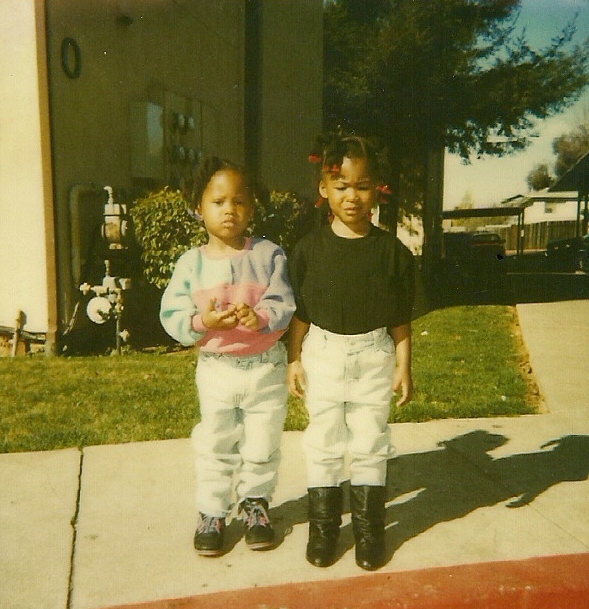Women’s Mental Health: Breaking the Silence, Smashing the Stigma
If you couldn’t make it to the Women’s History Month event at the Women’s Building in Vallejo, California, don’t worry—I’ve got you covered! We had an incredible time, filled with laughter, real talk, and some much-needed healing conversations. But just because you missed the event doesn’t mean you have to miss out on the message. So, let’s dive into what we talked about: women’s mental health, the pressures we face, and how we can start taking better care of ourselves—without the guilt.
Women’s Mental Health: Why We Need to Talk About It
Let’s be honest—being a woman comes with a lot of expectations. We’re supposed to be strong but not too strong, successful but not intimidating, effortlessly beautiful but not vain, independent but still “soft.” It’s exhausting. And our mental health? Often an afterthought.
Historically, women’s mental health has been ignored, dismissed, and—let’s just say it—flat-out gaslit. If you were a little too anxious or a little too sad a couple of centuries ago, you’d be diagnosed with hysteria and given, well… a lobotomy. Yikes.
Fast forward to today, and while we’re no longer being institutionalized for speaking our minds (progress!), women still face higher rates of anxiety, depression, and burnout than men. And no, it’s not because we’re "too emotional"—it’s because we’re juggling a ridiculous amount of stress with very little support.
The Pressure to “Have It All”
You ever feel personally attacked by the phrase “You can have it all”? Because let’s be real—that really just means, “You can do it all.”
Work full-time. Raise perfect children. Keep the house immaculate. Have a thriving social life. Look like a model while doing it. And if you struggle? Well, that’s just a “you” problem.
It’s no wonder so many women are experiencing burnout and mental exhaustion. We are not machines, and yet society keeps telling us we should be able to function like one.
The Beauty Standard Scam
Let’s talk about another thing that’s been messing with our mental health for way too long: beauty standards.
It’s never enough, is it? You’re either too much or not enough. Too thin? Eat more. Too curvy? Lose weight. Wear makeup? Fake. No makeup? “You look tired.” Botox? Vain. Wrinkles? You “let yourself go.”
It’s almost as if… stay with me here… the goal isn’t for us to feel good about ourselves, but to keep us spending moneytrying to.
And social media? Not helping. We’re constantly bombarded with photos of people who have seemingly perfect lives, flawless skin, and abs that look like they require a separate zip code.
So here’s the solution: unfollow, unlearn, and undo the damage. Follow people who celebrate real bodies. Unlearn the idea that your worth is tied to your appearance. And for the love of all things holy, remember that Instagram is basically Photoshop’s playground.
Medical Gaslighting & Mental Health
Now, let’s talk about women and healthcare.
If you’ve ever told a doctor you’re exhausted and they responded with “Try yoga”, congratulations—you’ve experienced medical gaslighting.
Women’s pain—physical and emotional—is often dismissed. We say, “I’m always tired,” and doctors say, “Drink more water.” We say, “I feel depressed,” and they say, “Have you considered smiling more?”
It’s infuriating. And it’s dangerous. Women are frequently misdiagnosed or ignored, leading to years of untreated mental health conditions. That’s why it’s crucial to advocate for yourself. If a doctor dismisses your concerns, find another one. If a therapist doesn’t understand your struggles, keep looking until you find one who does.
So, What Do We Do?
If there’s one thing we took away from our Women’s History Month event, it’s this: we don’t have to suffer in silence.
Here’s how we start shifting the narrative:
Talk about it. The more we speak up about women’s mental health, the more we break the stigma.
Set boundaries. “No” is a complete sentence. Resting is productive. You don’t have to earn the right to take care of yourself.
Build a support system. Connect with women who lift you up. Check in on your friends. Be honest about your struggles.
Rethink self-care. It’s not just bubble baths and skincare (though, we love those too). It’s setting boundaries, going to therapy, unlearning harmful beliefs, and giving yourself grace.
Demand better healthcare. Advocate for yourself. If your concerns aren’t being taken seriously, don’t stop until someone listens.
Final Thought
At the event, we laughed, we vented, and we supported each other. And that’s what this is all about—creating a space where women can be honest about their struggles without judgment.
So, whether you were there in person or reading this now, know this: you are not alone. You are not broken. You are not failing. You are human. And you are worthy of care.
Let’s keep the conversation going. Let’s keep supporting each other. And most importantly—let’s take up space, unapologetically.
Until next time, take care of yourself. You deserve it.






Comments
Post a Comment